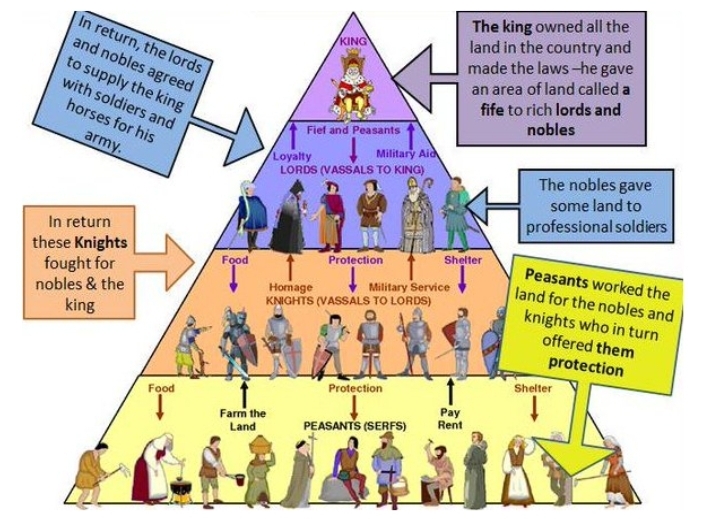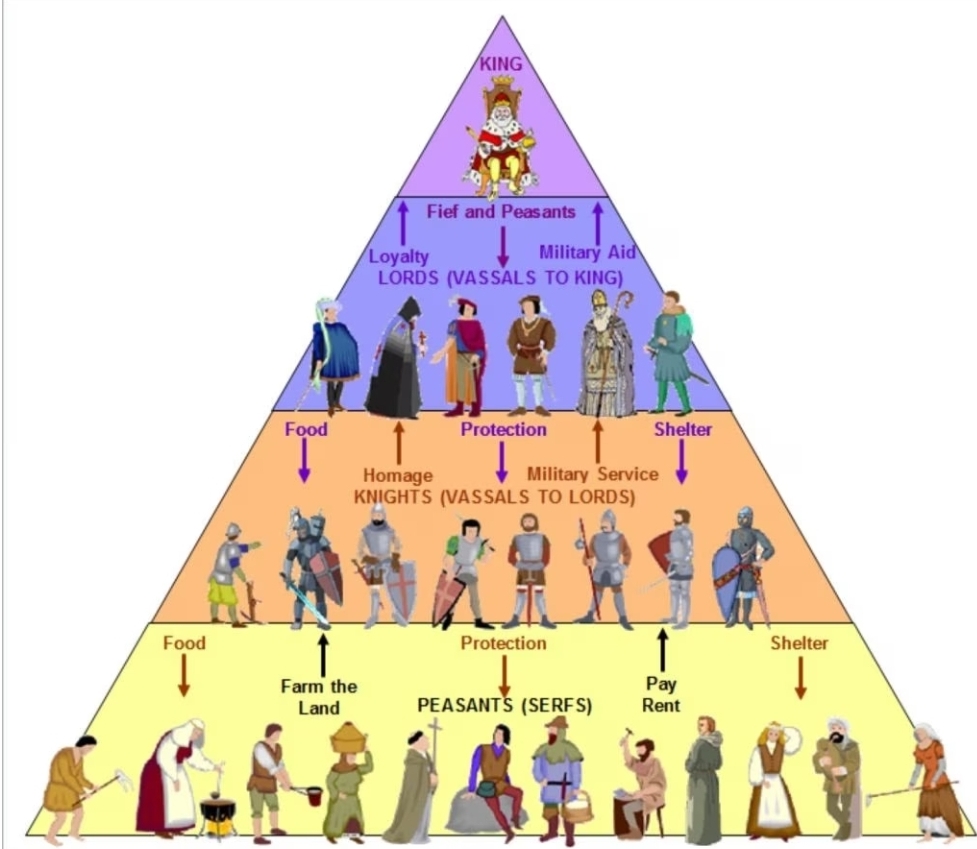The idea that the world is returning to neo-feudalism suggests that modern society is evolving into a system that mirrors the feudal structures of medieval times, where power and resources were concentrated in the hands of a few elites, and the majority of people lived under their control with limited mobility or freedom. This argument is based on current economic, political, and social trends that seem to erode democratic principles and individual freedoms, while deepening inequality.
Key Aspects of Neo-Feudalism:
- Concentration of Wealth and Power:
- Similar to medieval feudalism, where landowners controlled the economy, today’s version of neo-feudalism sees a small number of individuals or corporations controlling vast amounts of wealth. The wealthiest 1% have seen their income grow exponentially, while the middle class shrinks and the gap between the rich and poor widens.
- Mega-corporations and billionaires exert significant influence over economies and governments, leading to policies that favor the elite, while many individuals experience financial instability.
- Erosion of the Middle Class:
- The middle class, which grew in the post-World War II era as a stabilizing force in democratic nations, is now shrinking. As wages stagnate and costs of living rise (particularly housing, healthcare, and education), more people fall into precarious economic situations.
- This is reminiscent of feudal societies, where there was little to no middle class—just a small, wealthy elite and a large population of serfs and laborers.
- Debt as Modern Serfdom:
- In medieval times, peasants were tied to the land through obligations to their lord. In a similar way, modern individuals may feel “trapped” by debt—whether it’s student loans, mortgages, or medical bills—making it difficult to improve their social or economic standing.
- High levels of personal debt and rising living costs create a form of economic serfdom, where people are constantly working to pay off debts rather than building wealth or advancing socially.
- Corporate Feudalism and Privatization:
- In modern neo-feudalism, large corporations have gained control over key aspects of people’s lives. Whether it’s Big Tech monopolizing the internet, private companies controlling essential services (like utilities, healthcare, and education), or companies exercising control over labor through gig economies, these corporations become the “lords” of modern society.
- Privatization of public goods and services has increased corporate influence, creating powerful entities that resemble the decentralized power structure of feudal lords, who each governed their territories independently of the central state.
- Erosion of Political Power and Democratic Institutions:
- Neo-feudalism is marked by the weakening of national governments and democratic institutions, and the rise of corporate influence and private interests. Global corporations and wealthy elites often dictate political agendas through lobbying, campaign donations, and media influence.
- Just as medieval kings relied on the support of powerful nobles to maintain control, modern governments are increasingly beholden to corporations and special interest groups, eroding the power of ordinary citizens in the political process.
- Digital Control and Surveillance:
- Feudal lords exercised significant control over their subjects. In the modern world, surveillance technology and data collection have become tools for controlling and influencing populations. Big Tech companies collect vast amounts of data on individuals, which can be used for targeted advertising, political manipulation, and even social control.
- The rise of surveillance capitalism, where companies profit from personal data, mirrors the intrusive power structures of feudal societies where lords controlled nearly every aspect of their subjects’ lives.
- Job Insecurity and the Gig Economy:
- In feudal societies, peasants had little control over their work or conditions, and this can be compared to the rise of the gig economy today. Many people now work in insecure, freelance, or contract-based jobs with few benefits and little job security. This is sometimes described as a return to a “feudal” labor market, where workers are forced into precarious conditions and must serve multiple “masters” to make a living.
- Workers in the gig economy have little bargaining power and are often at the mercy of algorithms, apps, and corporate policies that dictate the terms of their labor.
- Housing Crisis and Neo-Feudal Lords:
- Just as medieval lords owned the land that peasants worked on, today, a small class of landlords and real estate investors controls vast amounts of property, often making it difficult for average people to afford homes. This creates a dependence on renting, where individuals pay increasingly high rents without gaining any equity or ownership, further widening the wealth gap.
- Climate Change and Resource Control:
- In neo-feudal scenarios, access to vital resources like water, clean air, and food could become privatized or controlled by elites. Climate change and environmental degradation exacerbate these inequalities, with the rich able to insulate themselves from the worst effects while the poor and marginalized communities suffer disproportionately.

How Could This Happen in Real Life?
- Erosion of Democratic Oversight:
- When government institutions weaken or become corrupted by elite interests, the checks and balances designed to protect the common people are eroded. Lobbying, corporate donations to political campaigns, and control over media narratives all contribute to a system where elites have disproportionate influence over policy decisions.
- Economic Shifts:
- The shift from manufacturing-based economies to service and gig economies has contributed to income inequality and job insecurity, leading to a decline in economic mobility for many people.
- Corporate Monopolies:
- The rise of massive corporations that control entire sectors of the economy (like Amazon, Google, or Facebook) has reduced competition, consolidated wealth, and diminished consumer power. Corporate monopolies, like feudal lords, have significant control over the lives of their “subjects”—in this case, employees, consumers, and even governments.
- Privatization and Deregulation:
- Governments’ decisions to privatize public services and infrastructure (like healthcare, education, and prisons) allow private interests to dominate these sectors, often to the detriment of citizens. Deregulation allows corporations to operate with minimal oversight, exacerbating inequality.
- Surveillance and Data Exploitation:
- With the increased use of surveillance technologies and data exploitation by both governments and corporations, individuals’ privacy and autonomy are increasingly infringed upon, leaving them vulnerable to manipulation and control.
Neo-feudalism describes a world where a small, wealthy elite holds immense power over the majority of the population, controlling access to wealth, opportunities, and freedoms. While the modern world operates differently from the medieval period, many of the same dynamics of power and control—concentrated wealth, lack of mobility, and increasing dependence on elites—are at play. These dynamics raise concerns that societies could increasingly resemble feudal structures, with democracy and individual freedoms being eroded as inequality rises.







